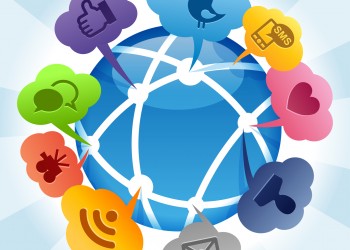Social media has literally changed the face of marketing and promotions for MICE industry businesses, meeting planning organizations and events of every size. Small businesses benefit from its $0 price tag and see it as an easy way to participate in industry conversations and stay in front of clients. Big businesses are well aware of the benefits too, and according to research by the University of Massachusetts Dartmouth Center for Marketing Research, 73% of Fortune 500 companies were active on social media long before it became a must-have. Fast-forward to today and the number of businesses participating is even higher, especially with the numerous advances in social media services, apps and online tools.
Yet despite social media’s potential to be a powerful resource for destination and event management providers, it requires in-depth understanding, strategic planning and constant management to successfully aid your business and build your brand. In fact, there are several things social media simply can’t do, proving that tried and true business strategies and tactics are not to be forgotten in the wake of this technological phenomenon. Below are five social media myths debunked.
Social media can act as a your only marketing channel
As effective and interactive as social media can be for your brand’s exposure, reputation and market position, it should be treated as a piece of your social marketing strategy – not your entire plan. “Social media has provided most businesses with amazing opportunities for branding…but if the brand is not managed at a strategic level, these social media efforts can lead to brand chaos and confusion in the marketplace,” said Stephanie Hackney of Branding Masters in a BusinessNewsDaily.com article.
If social media is the only component in your strategy to reach your customers, you’re missing out on attaining a whole segment of customers who are not active online. Likewise, how will customers know to tune into your online accounts if you’re not promoting them anywhere else? Effective marketing strategies are a combination of several publicity methods, including traditional advertising efforts.
Social media will make you an overnight success
The right post or tweet can certainly bring loads of attention by going viral, but true success isn’t defined by the number of followers, retweets or likes you gather. Rather, it’s defined by user engagement. Meaningful, measurable results can take time to achieve. Furthermore, unless your brand is already successful, well respected and well known, it’s hard to attract the attention of new followers. You must pass consumers’ initial “why should I care?” test in order for your efforts to strike a chord in your audience.
Bayard Winthrop, CEO of American Giant, states that by cultivating fans that feel an emotional connection with – and eventually love for – your brand, you will build a following of loyal, incentivized and willing brand evangelists. For more on how to do so, please see companion guides Social Media Marketing and Management and Influencer Marketing: How to Build a Winning Brand and Inspire Social Influencers.
Social media will fix inconsistencies
Social media can actually highlight the flaws between what a company says and what it actually follows through on. You may be active, compassionate and engaging online, but if this doesn’t echo your true business nature, it will be only a matter of time before someone posts a comment or tweet to that effect. For example, if an airline company boasts about never losing passenger luggage on their Facebook site, this gives the consumers the opportunity to post – for all to see – if they do. Social media allows you to build relationships and broadcast your brand, but neither of those objectives can be met if you are inconsistent.
Social media will directly drive sales
Social media can increase your awareness, improve customer service and introduce you to new customers. However, one thing it can’t do is directly sell for you. According to research into online retail performance conducted by market research experts Forrester Research and GSI Commerce, less than 2% of all orders were driven by shoppers on social networks, while search results and email marketing converted the most.
That being said, social media is great for indirectly helping you sell your product. A great example from the Wall Street Journal used toy company Step2 as an example of how adding loyalty icons and badges for reviewers and buyers lead to a 300 per cent boost in revenues. Most of these new buyers arrived at Step2.com through the Facebook Connect button after seeing the badges and loyalty icons.
These customers most likely did not actively look to buy something online, but because of a social media campaign that drove awareness of their products, demonstrated authenticity and displayed satisfied customers who made past purchases, people became curious. Once they clicked the Facebook link to visit the website and made a purchase, the company received a massive sales bump indirectly.
Social media is a substitute for offline interactions
A customer will learn a lot more from your emails or phone calls than they ever will in a 140-character tweet or Facebook post. Social media cannot replace a customer’s experience with a company since a large part of building connections and trust comes from face-to-face interaction, voice inflection/tone during phone calls, personal emails and more. Plus, social media content is public or email based, so real meaningful connections with key stakeholders are rare using just social media.
The Wall Street Journal notes that face-to-face interaction has become even more valuable. As Harvard economist Edward Glaeser also points out, business travel has dramatically increased since the invention of email. Attendance at business conferences has spiked since the invention of video-conferencing. Therefore, because of the increase in social media, cities have increased their need for personal communication in business.
It is undeniable that advances in social media have aided in business marketing; however, the key to effective usage is remembering to use it strategically and often. Sometimes, sharing a cup of coffee or networking with a prospective client will reflect your business in a much more positive light than a tweet or Facebook post.













